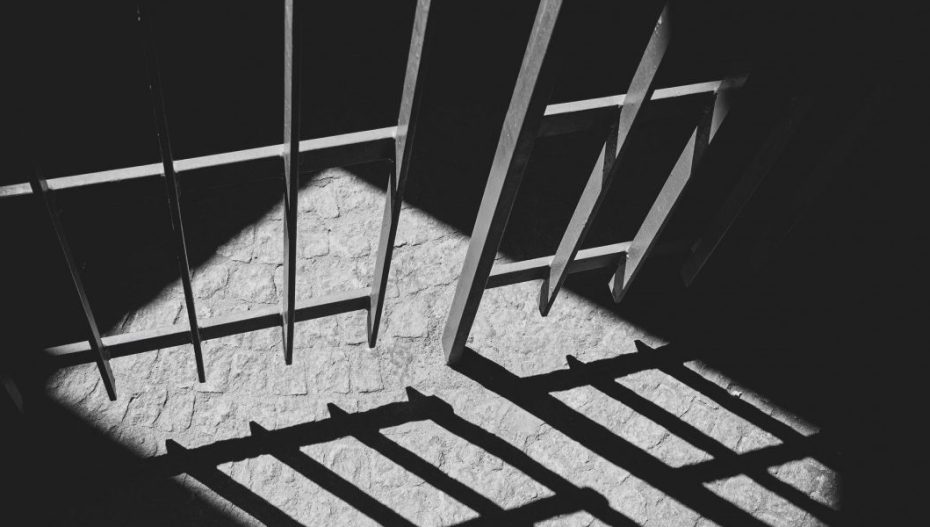A remission petition filed in the Supreme Court by Dara Singh, who is serving a life sentence for the 1999 murder of Australian missionary Graham Staines and his two minor sons, has sparked a controversy, with opposition leaders questioning the timing of the move that follows the installation of Odisha’s first BJP government.
The gruesome killings that took place on January 22, 1999 in Manoharpur village in the tribal-dominated Keonjhar, the home district of chief minister Mohan Charan Majhi, had evoked international outcry.
A mob led by Dara, a Bajrang Dal activist, had set fire to the station wagon in which Staines and his sons Philip (10) and Timothy (6) were sleeping, charring them to death.
Dara, who was arrested on January 31, 2000, has spent more than 24 years in jail. The case, unprecedented in the history of Odisha, remains a permanent blot on the state.
Dara filed the petition through his advocate, and has sought remission citing the principles of reformative justice and his age (he is over 60).
The apex court has sought a reply from the Odisha government on Dara’s plea within six months. Opposition leaders, however, smell a rat.
“The timing of the petition is suspect. There was no such move for [many years] when Dara was in jail. But now, this petition has come up suddenly following the installation of a BJP government in the state. This is bound to raise suspicions that the new government is sympathetic towards Dara and that he has filed the petition in the hope of getting a positive response from it,” said former Biju Janata Dal (BJD) MLA Rajkishore Das, who hails from Mayurbhanj, the district adjoining Keonjhar.
Congress MLA from Jeypore Tara Prasad Vahnipati expressed similar sentiments. “The timing of the petition is definitely suspicious. People will draw their own conclusions,” he averred.
Significantly, soon after chief minister Majhi – who is Keonjhar’s MLA – took oath of office, there were reports in a section of the media that he had in the past supported the demand for Dara’s release and had in September 2022 sat on a dharna along with Sudarshan TV editor Suresh Chavhanke when the latter was refused permission to meet Dara in Keonjhar jail.
The incident created an impression that Majhi, who has been elected to the state assembly four times from Keonjhar, is sympathetic towards Dara.
This impression has been further reinforced because of Majhi’s RSS background. The chief minister, who has risen from the ranks, began his career as a Saraswati Shishu Mandir teacher. He made his political plunge much later.
Majhi, however, has studiously avoided commenting on media reports raking up his past, when he was seen as having a soft corner for Dara.
Apart from the Staines case, Dara was also pronounced guilty in the August 1999 murder of a Muslim trader, S.K. Rehman from the Padiabeda village in Mayurbhanj district, as well as the killing of 35-year-old Catholic priest Arul Doss at the Jamubani village in Mayurbhanj the same year.
However, it was the Staines case that hogged the limelight because of its gruesome nature and the public outcry it evoked. The case also reflected on the tussle between Christian missionaries and Hindutva forces in the tribal belt of Odisha, where religious conversion has been a major issue for quite some time now.
Dara and his associates had sought to kill Graham Staines as they believed he was engaged in religious conversion.
Conversion was also at the core of the strife between groups of tribal people in Kandhamal district, resulting in the killing of Vishva Hindu Parishad leader Swami Laxmanand Saraswati in August 2008. His death triggered one of the worst communal riots in the history of the state, resulting in the killing of 38 people and the destruction of hundreds of houses.
While the marauding mobs destroyed a large number of churches, hundreds of Christian community members were forced to flee their homes. They were later settled in rehabilitation colonies.
“Religious conversion remains a contentious issue, mainly in the state’s tribal belt, where literacy and education levels are low. The tribal areas have turned into battlegrounds, with Hindutva organisations, mainly the RSS and its affiliates, taking on the might of the church. The Hindutva organisations have set up their own ashrams and schools in a bid to counter the influence of the church,” said political analyst Sabita Mohanty.
Significantly, the war for supremacy between Christian and Hindu missionaries has resulted in the sharp polarisation of the tribal society along religious lines.
The impact of this polarisation has also been felt in the elections, with the BJP reaping benefits. In the recently concluded elections, the saffron party claimed 20 out of 21 Lok Sabha seats in the state, including tribal-dominated seats like Kandhamal, where the Naveen Patnaik-led BJD had a strong base.
Though the BJD had a strong candidate in well-known educationist Achyut Samanta in Kandhamal, he failed to hold on to the seat he had won in 2019 because of the sharp polarisation of votes along religious lines. The communal divide in the constituency was so vast that Samanta’s unique contribution to the educational advancement of tribal children was forgotten by the majority of voters, who plumped for the BJP.
Koraput in southern Odisha was the only tribal constituency that resisted attempts at the division of votes along communal lines. The seat was retained by the Congress’s Saptagiri Ulaka, who carries forward the secular legacy of his father Ramchandra Ulaka.
“Any division in the society impacts politics as well. We saw this happening in the recently held elections. But this is not a healthy trend,” said Mohanty.
(This story was first published in The Wire)
Also Read: 19-Yr-Old’s Reddit Post About His Fraud To Enter US Lands Him Back In India










